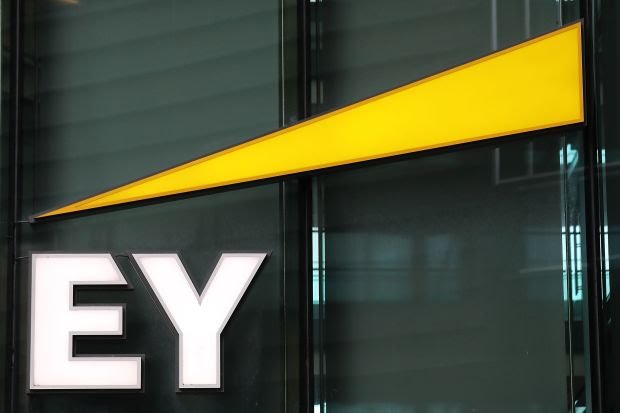Ernst & Young Quits as Auditor for Chinese Bank Citing Loan Inconsistencies
Resignation adds to concerns about the health of China’s regional banks
Bank of Jinzhou Co. said its auditors resigned, sending some of its debt securities plunging and reigniting investor concerns about the riskiness of China’s smaller lenders.
Ernst & Young Hua Ming LLP and Ernst & Young said in a resignation letter to the bank that there are indications that some loans to institutional customers weren’t used in ways consistent with the purposes stated in documents, Bank of Jinzhou said in a statement late Friday. The lender’s shares are suspended from trading in Hong Kong.
China’s small- and mid-size lenders have been under increasing scrutiny after regulators last month seized control of Baoshang Bank Co., citing serious credit risks. The central bank said on Sunday that the move was an isolated case triggered by misappropriation of funds by Baoshang’s largest shareholder, but concerns linger about the health of the nation’s small banks.
Bank of Jinzhou’s loss-absorbing debt instruments, known as AT1 bonds, fell to a record low on Monday. Trading in its Hong Kong shares has been suspended since April 1 after publication of the financial results was delayed. A Bloomberg index of Hong Kong-listed Chinese banks fell 0.6% on Monday compared with a 0.3% decline in the Shanghai Composite Index.
EY, which was hired in May 2018 to review Bank of Jinzhou’s accounts for the latest financial year, had asked for additional documents to demonstrate the clients’ ability to service the loans, the lender said Friday. While it had been working with EY to provide the information, the two sides had been unable to reach a consensus on how to resolve the concerns or confirm a timetable for publishing the delayed 2018 results, the bank said.
Apart from what is already disclosed, EY’s resignation letter said there’s nothing else the firm considers should be flagged to shareholders or creditors, Bank of Jinzhou said in Friday’s statement. Crowe (HK) CPA Ltd. was named as the bank’s new auditor and Bank of Jinzhou said it expects to publish the 2018 results by the end of August.
Bank of Jinzhou was among several lenders named by Jason Bedford, a UBS Group AG analyst who in 2017 highlighted Baoshang’s troubles, in a note to clients published Tuesday. The firms failed to publish latest financial statements, have a large portion of their balance sheets invested in “loan-like investment assets” and are subject to negative local media coverage, Bedford wrote. Officials at Bank of Jinzhou weren’t immediately available for comment.
Alicia Garcia Herrero, chief economist at Natixis Bank Ltd., doesn’t expect any delinquencies on debt repayments at Chinese banks. “There will be rapid consolidation through take overs of smaller banks by larger ones and no defaults,” she said.
There are almost 4,000 small city and rural banks in China and these typically have “more vulnerable funding and liquidity profiles, larger shadow-financing activities and lower loss-absorption capacity” than larger commercial banks, according to Fitch Ratings.
Bank of Jinzhou was set up in 1997 in Liaoning province in northeastern China. It has total assets of $113 billion and total deposits of $53 billion, according to the latest data compiled by Bloomberg. The bank first listed in Hong Kong in December 2015, and has gained 50% since its debut.




Comments
Post a Comment